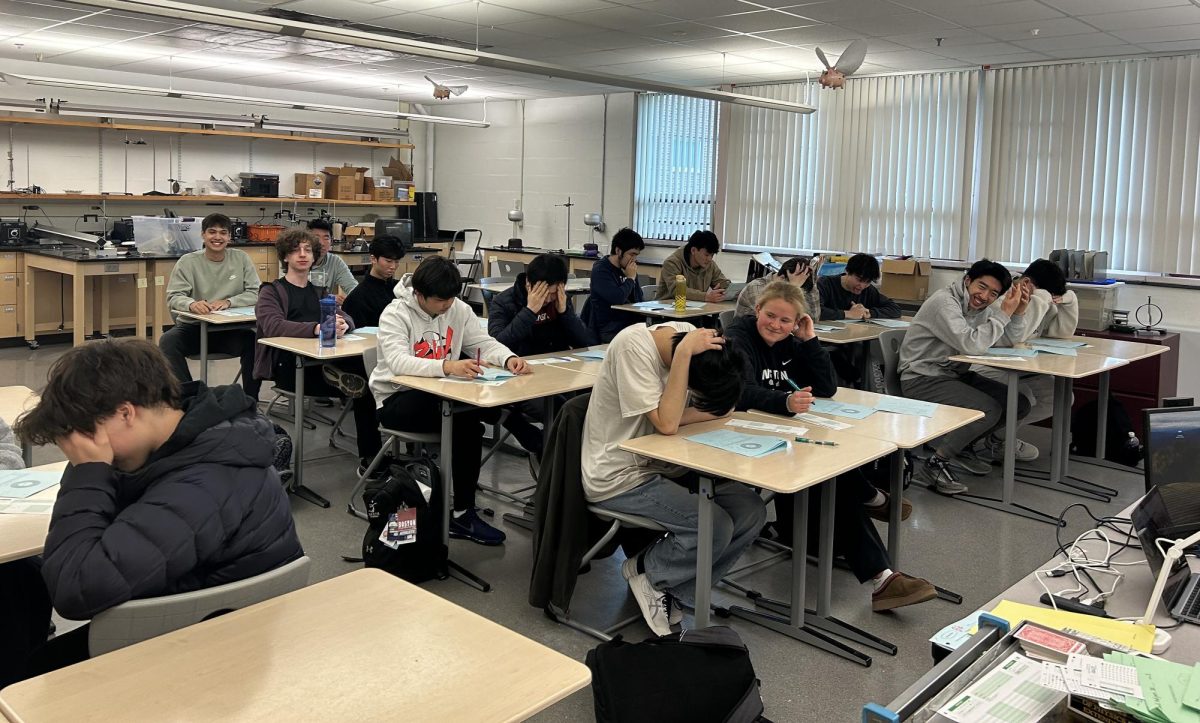AP classes at Weston High School are known for their rigor. With the exam dates approaching, AP students and teachers can now reflect on their experiences in the classroom this year and share effective strategies for success for those who may take the classes in the future or who hope to earn strong scores on the tests in May.
One of the first processes students face is selecting which AP courses to take. With a variety of subjects offered at WHS, it’s important to consider both personal interests and workload expectations.
“Students should choose AP courses based on both their interests and their strengths,” said Angela Lee, AP history teacher at WHS. “If they are genuinely curious about a subject, they are more likely to stay engaged despite the workload.”
For many students, keeping up with assignments and fast paced-classes can be challenging.
“Students typically struggle with keeping up with the work in AP World History. It is very fast-paced, and it doesn’t slow down,” said Lee. “Especially with the weekly assignments, where they have to read 35 to 40 pages and complete two assignments. If they don’t pace themselves properly, it’s easy to fall behind.”
Some students who take multiple AP courses at once often struggle even more with this workload, with many emphasizing the importance of pacing themselves to be able to keep up with all of their assignments.
“Some of the AP classes this year feel rushed, especially when teachers are focused on covering all the material rather than diving deeply into each topic,” said junior Pamela Hao, who is currently taking BC Calculus, AP Chemistry, AP U.S. History and AP Physics. “It’s very important to find a balance when you select your courses so you’re not overwhelmed.”
AP science and math courses, in particular, come with heavy workloads combined with higher difficulty.
“The hardest AP subject for me is Physics because of the difficulty and the amount of work required,” said James Lundberg, junior at WHS who is currently taking AP US History, BC Calculus and AP Physics. “The assignments and revision materials pile up quickly, so it’s critical to stay ahead.”
Regardless of which AP courses students take, time management and consistent study habits play a key role in success, AP teachers emphasize that waiting until the last minute to review is not effective.
“The most important factor in succeeding in AP classes is consistency,” said Lee. “Instead of cramming, students should spread out their work and tackle it in small portions throughout the year.”
Beyond staying on top of assignments, effective revision and study habits play a critical role in exam preparations.
“I suggest students take one large mock AP exam before the actual exam, making them have a sense of how long to spend on each question,” said Bailey Fidler, math teacher at WHS. “I also recommend watching daily AP videos and using Khan Academy since they are all quite useful resources.”
Students also find external resources that are useful for reinforcement of knowledge as well as exam preparation. .
“I plan to use online resources like Khan Academy and the Course and Exam Description (CED) to prepare for my AP U.S. History exam,” said Lundberg. “Breaking up textbook readings over several weeks also helps reinforce my understanding.”
Similarly, AP teachers often help students prepare for the AP exam in extensive ways.
“I often provide my students with AP style questions on their unit tests,” said chemistry teacher and science department head Dr. Stephen Ribisi. “This really helps them to familiarize themselves with the level of difficulty they will encounter on the actual exam.
Some teachers also prefer to implement interactive learning strategies to engage students, providing a more interactive learning environment.
“For my class, I use group discussions, primary source analysis, and timed activities to help students process information quickly and accurately,” said Lee. “Learning is more effective when students actively participate rather than just passively absorb material.”
Many AP students acknowledge the effectiveness of AP teachers’ preparation strategies.
“I think the teachers do a pretty good job at getting us used to the AP style exam. The tests and quizzes we take throughout the year are basically smaller versions of the actual AP exam,” said senior King Wang, who is currently taking AP European History and AP Music Theory. “In AP European History classes, for example, our quizzes are just parts of the real exam.”
Beyond academics, students emphasize the importance of mental well-being during AP exam season.
“At a certain point, it’s not about cramming new information but reinforcing what you’ve already learned,” said Wang. “A well-rested mind is key—getting enough sleep and starting the day early really improves focus and memory.”
For students planning to select AP courses in the future, current AP students emphasize the importance of genuine interest in the subject.
“The only thing that has kept me going is that I’m interested in these subjects. The large amount of work can get really annoying or frustrating sometimes,” said Lundberg. “But by keeping interest in the courses, you can be motivated to work hard and do a lot more.”






